2023 marks five years since the Ecology Green Farm was founded by Yinka Shonibare CBE RA. The expansive 54-acre estate, bordered by dense rainforest and vegetation lies on the outskirts of the village of Ikise in Ogun State, Nigeria. The remote location, whilst abundant in natural beauty has precluded the local community from accessing many of the opportunities available to those living in neighbouring cities and urbanised areas. Shonibare had to build a 3km road just to allow access to the land and if you drive along that road today you’ll find new structures at various stages of completion that would undoubtedly not have existed without it. The challenges faced by Ikise’s community were foundational touchpoints used to establish the objectives of the farm project which include providing infrastructure for rural economic development and addressing food insecurity and economic deprivation.
 Romas and heirloom tomatoes ripening in the greenhouses.
Romas and heirloom tomatoes ripening in the greenhouses.
In recent months the EG Farm has undergone a period of strategic re-evaluation following a consultation period with the Federal University of Agriculture, Abeokuta Ogun State, and working with farm management specialists Sogold Agricultural Ventures. Our joint priority was to increase both the variety and volume of harvests whilst providing more opportunities for training and employment. We’re at a stage now where we can share some of the changes that have been implemented.
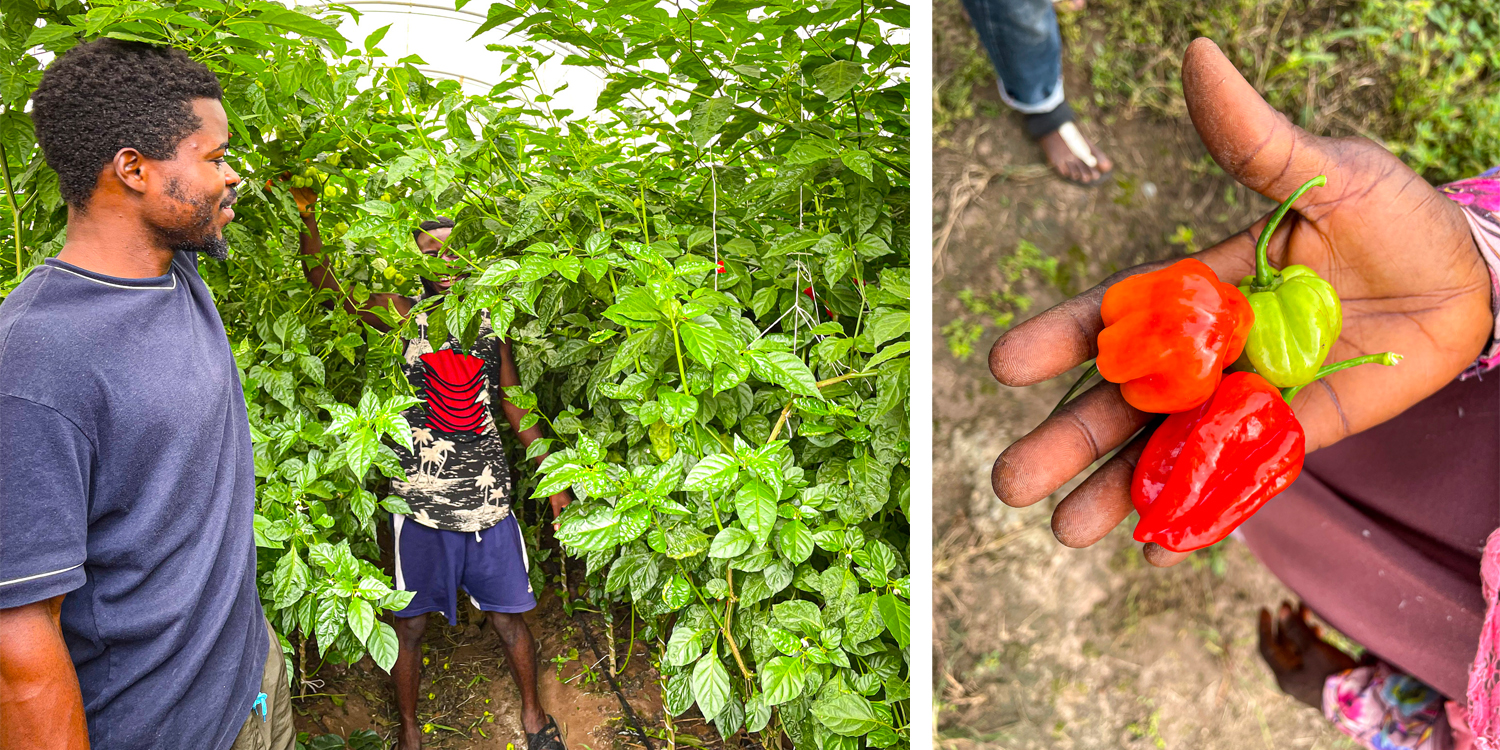 Habanero peppers in a greenhouse ready for harvest.
Habanero peppers in a greenhouse ready for harvest.
Since their appointment, Sogold and its CEO Ayopo Somefun have successfully overseen the planting of 1,300 coconut trees. In four years, when it is expected that they’ll reach full maturity, each tree is projected to yield 150 fruits per year. The coconut trees are strategically interspersed with cassava, the crawling tubers which have been harvested at the farm for several years, are being used both as a crop and a natural means of regulating weed growth.
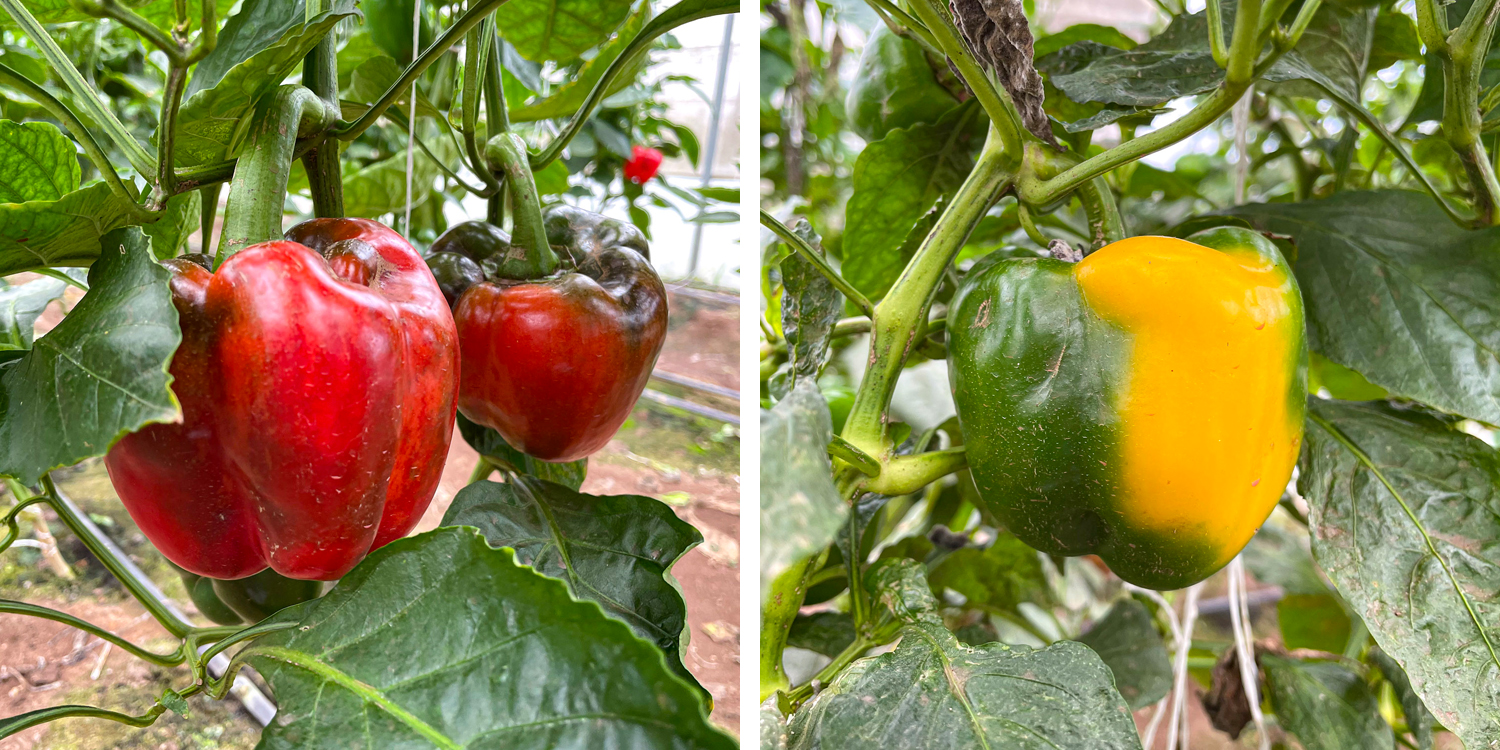 Ripening yellow and green bell peppers.
Ripening yellow and green bell peppers.
An adjoining orchard of 2000 orange trees and 500 Lisbon lemons has also been planted recently, in this instance maize is the crop of choice for weed management. In other parts of the farm, areas that have suffered extensively from invasive weeds have been cleared and preparations are underway for the introduction of beans. This staple in Nigerian diets is presently being imported due to a skills shortage related to processing, something the EG Farm also hopes to address.
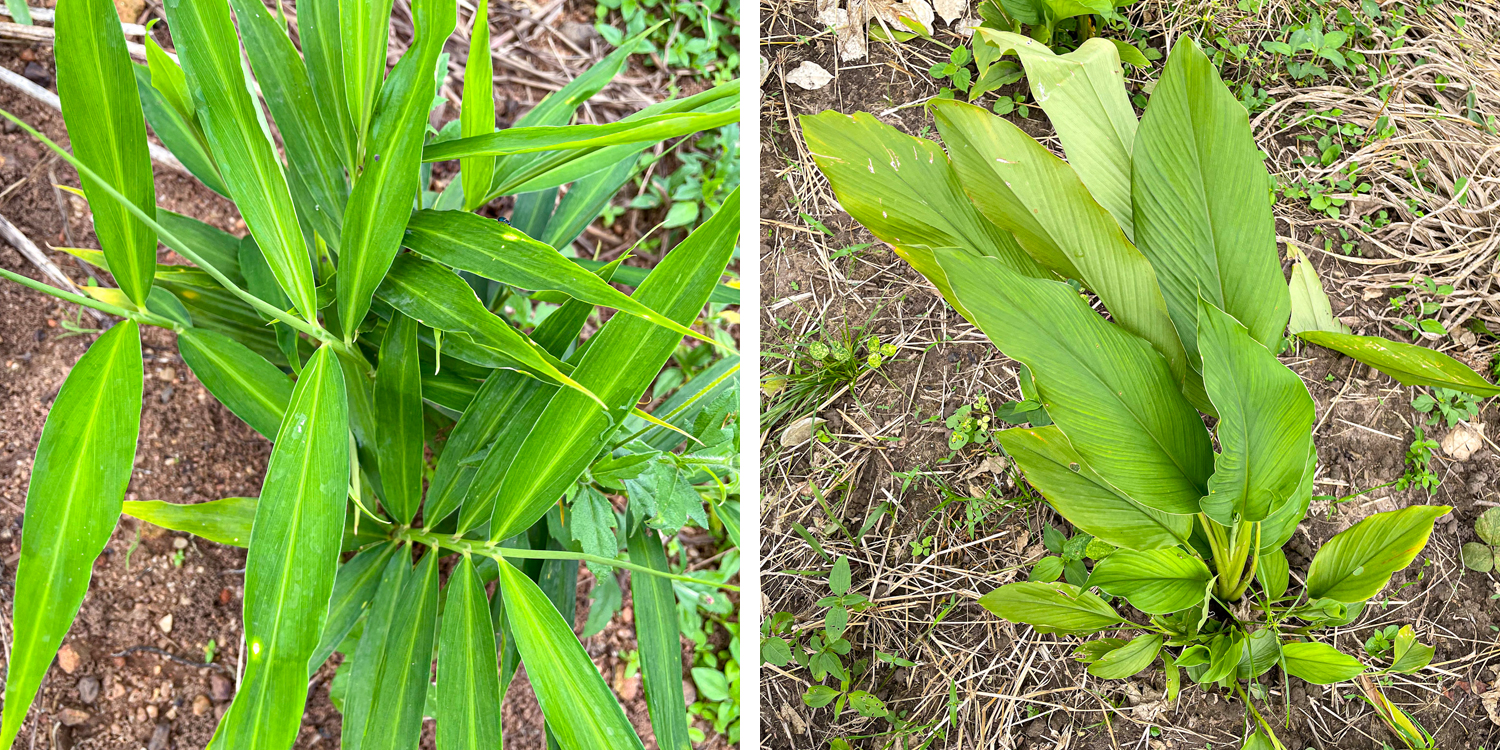 Ginger (L) and turmeric (R) crops act as natural insect repellents.
Ginger (L) and turmeric (R) crops act as natural insect repellents.
An experimental crop of turmeric and ginger is thriving, an exciting and positive development as both plants are natural insect repellants. Sweet potato was introduced at the end of August to join the existing family of climbers along with groundnuts and 1,300 snails in a dedicated enclosure adding to the farm’s diverse repertoire of produce. The existing greenhouses are flourishing with habanero peppers as well as three varieties of bell peppers and two varieties of tomatoes.
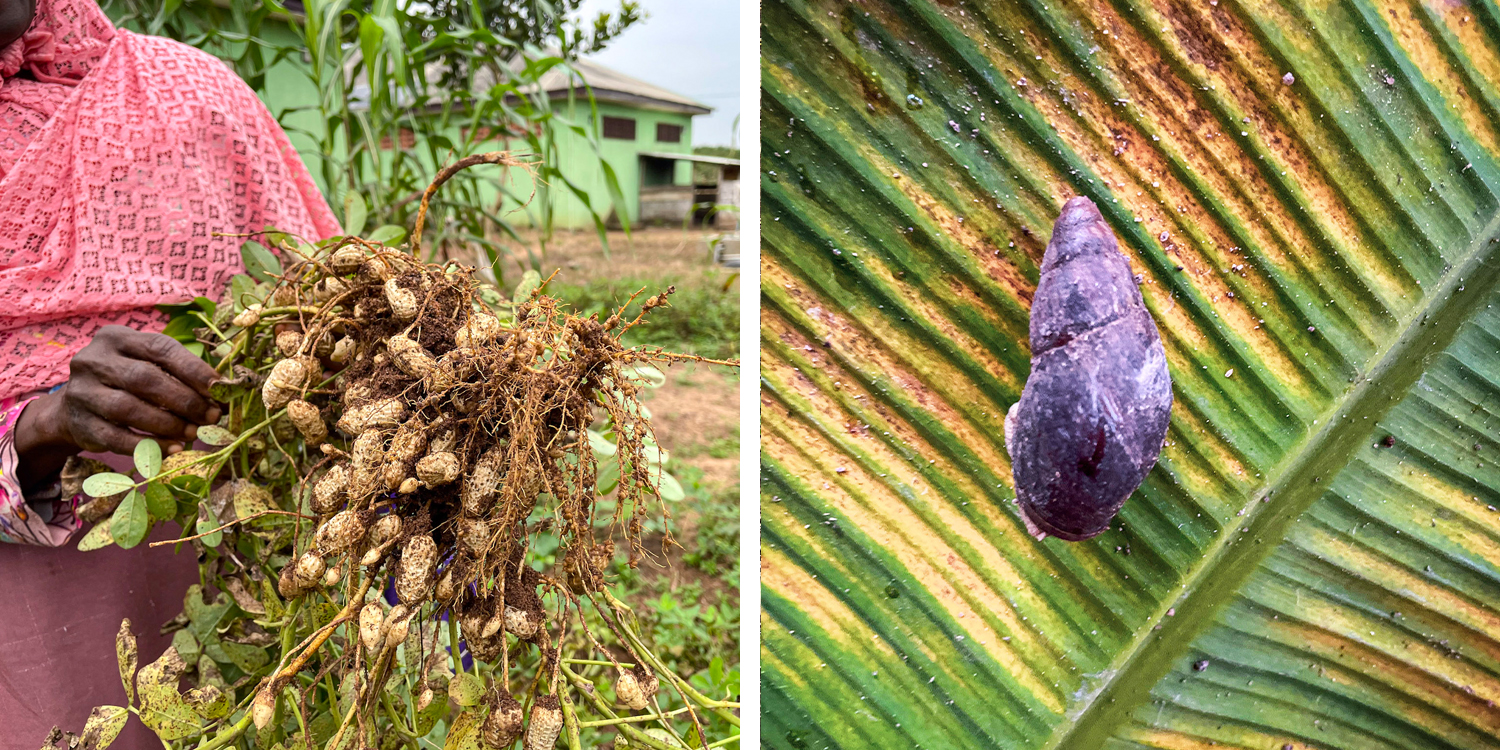 Harvested groundnuts (L) and the giant West African snail (R).
Harvested groundnuts (L) and the giant West African snail (R).
In the immediate future, farm staff are working towards installing and activating 200 beehives to encourage the many wild bees already present in the area to produce honey with harvesting projected to begin within 6 months. Further down the line beetroot seedlings brought in from Paris will be planted and within five years it is hoped that processing machinery for coconut oil and fruit juice will be in use.
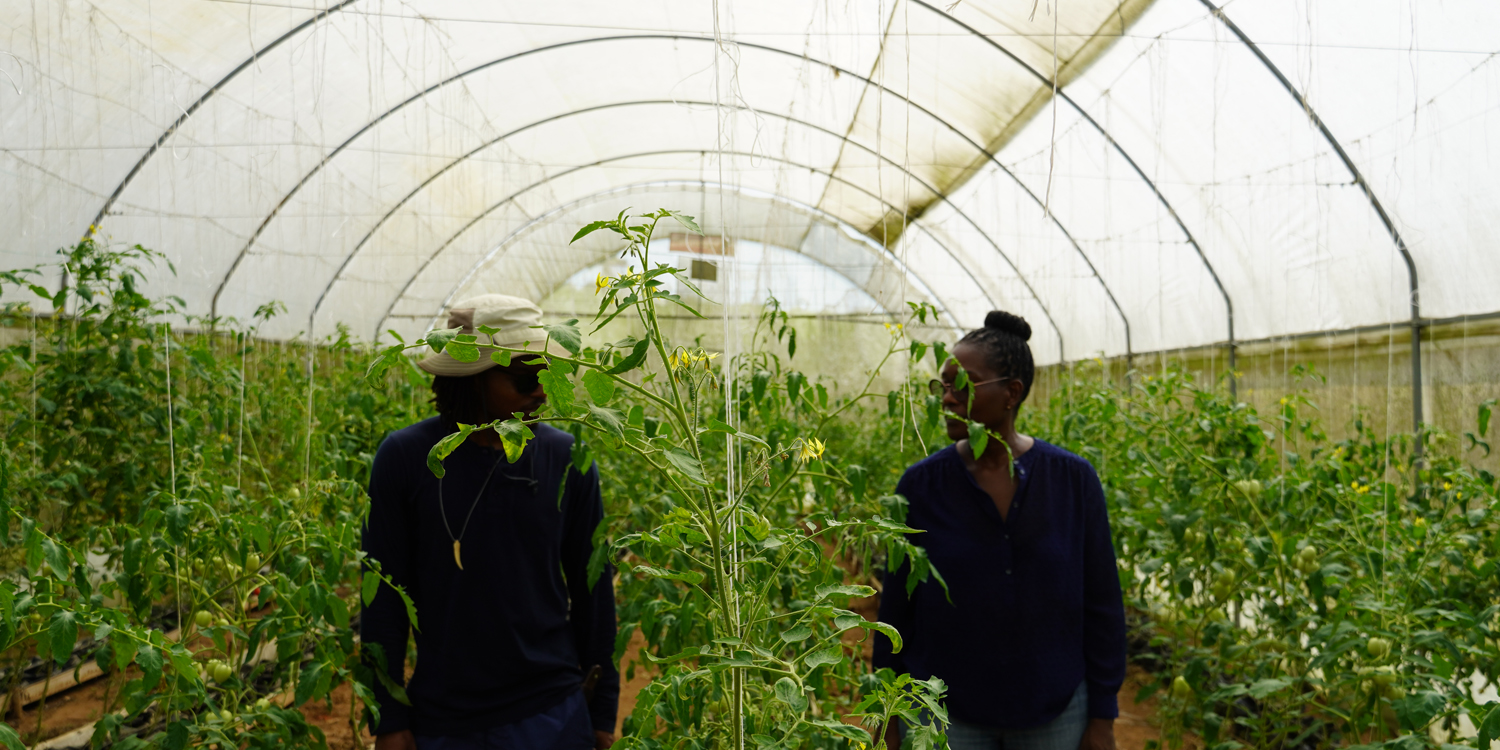 Chefs Michael Elégbèdé (L) and Selassie Atadika (R).
Chefs Michael Elégbèdé (L) and Selassie Atadika (R).
The farm has also attracted culinary attention with chefs Michael Elégbèdé and Selassie Atadika exploring the site's offerings during a recent visit. They ended their day cooking and eating from the farm harvest with G.A.S. resident Okiki Akinfe and G.A.S. staff. As the project continues to evolve it is hoped it will become a testament to the transformative potential of agriculture and community empowerment, and an enriching environment for pioneering culinary and agricultural residencies.